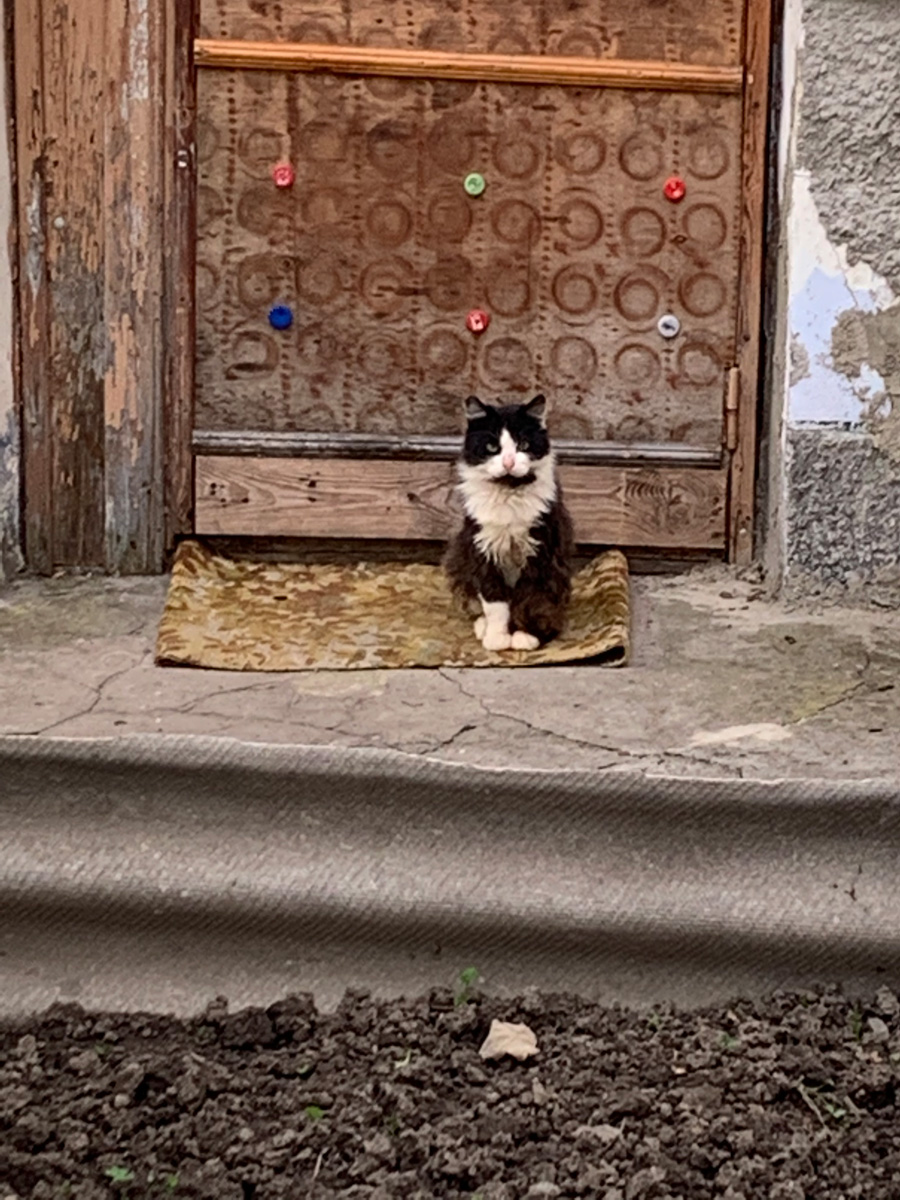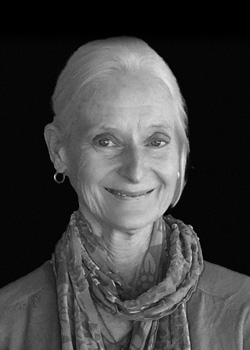As told to Lou McCall
Last month we began this conversation with two American friends, Chris and Luz, who met in Ukraine while serving in the Peace Corps. They bonded when they learned that they both had grandparents and great-grandparents from Ukraine. They each worked in Ukraine after their service. They are now in the US, having been evacuated from their overseas jobs because of Russia’s invasion in February 2022. In part one, they shared their experiences of living and working in Ukraine. This month, the conversation turns to war.
Luz: The war in Ukraine, it’s tragic. I haven’t processed it all… I am still working, and I feel like if I process it too much, I’m not going to be able to keep it together to work. I have to help save the lives of my colleagues or my former colleagues, it’s very hard. I know people who are in the military who are near the front lines. People who I would call family are heavily involved with protecting the country, and other people are just giving up everything. Their whole future plans are to participate in the community, to be part of helping in whatever way they can. The internally displaced people (IDPs) are moving from the east and the areas of heavy conflict further to the center, further west.
Chris: This little village I was describing has over 500 additional people living in it now. Can you imagine 500 more people coming into Questa?
Luz: Since the fall of the Soviet Union, there has been a demographic decline due to outmigration and low fertility rates. In all Ukrainian villages there’s been a huge population decline due to internal migration, and people moving to cities. In the first Russian invasion in 2014, over a million people fled from east to west.
The United Nations High Commissioner for Refugees or (www.unhcr.org) report that more than 14 million Ukrainian people are thought to have fled their homes since Russia’s invasion of Ukraine. Some six million of these Ukrainians have crossed an international border, making them refugees, while others are internally displaced, or IDPs. Poland has received an estimated four million Ukrainians, whereas Molodova and Romania have also provided refuge. Before the 2014 invasions, many Ukrainians were working in Russia, often because it was harder for them to get jobs in Europe, or they preferred Russia because they could speak the language.
Chris: One of my friends messaged me and said, “You know it’s horrible, this is terrible, it’s tragic. I hate it. But, if there is one positive thing, we are going to be better because we are more unified.” I’ve seen this, it is much more positive now. As my friend was saying, “… for those of us who are LGBTQ it’s already more positive.” He said this is helping us recognize that we’re each valuable in different ways and our diversity is important. I’ve seen in the Ukrainian news about their LGBTQ military personnel; Ukrainian media is highlighting progress made on inclusion and praising their first transgender high-level military official.
Chris: The other positive trend I see emerging is youth leadership. Ukraine has a relatively young president; the Cabinet of Ministers is also very young… everybody that I see on the news is under 40 and this administration embodies the “New Ukraine.” Zelensky won by a majority of votes. It is true, he was an actor, and please watch Servant of the People* on Netflix. He is also a gifted speaker and a businessman who owned a media company before getting elected.
Just before the war, we started to see how this “New Ukraine” translated into a better life for an ordinary Ukrainian. It is easier for them now to get their ID cards, passports: access to services has increased and improved. Internet access in Ukraine is so much better than in the US!
People continue to believe in Ukraine’s sovereign territory, which would also include Crimea. Before leaving Kyiv, my housemate was an IDP. He is a Crimean Tatar, an ethnic group that speaks a Turkic language. He went back to Crimea in January for the first time in four years. He struggled to get across the border and was able to prove that his parents were still there. He is connected to his schoolmates and his family. They don’t want Russia there at all, they don’t believe that Russia is their ruler—this is true for young and old alike. It is hard to speak up because Crimeans are detained daily, as are many people living in the Russian Federation.
Luz: A lot of the US government money spent in Ukraine went to good causes. Close to 3,700 Americans have served as Peace Corps volunteers in Ukraine. There is a program, the Future Leaders Exchange where high school students from Ukraine have been coming over to live with American families for nearly 30 years. There are strong ties between our two countries.
Luz: This war in Ukraine is devastating. It is devastating to infrastructure, to global food security, health systems, transportation systems, human rights, everything. So much of the prized agricultural land has been contaminated by land mines; de-mining will take decades. The human rights violations are depraved. The gender-based violence is a tool of the Russian Federation and rape is being systematically used as a weapon of war. In 2014 this practice was not rampant. Now, children are being raped until they die. This is depraved and it is meant to traumatize a population for generations to come.
Chris: And the Ukrainian Diaspora—In addition to many Americans who served in Ukraine, there are many who trace their roots to Ukraine. My grandmother would talk about Ukraine, and I couldn’t understand all the stories she told, but I wondered about her father who left Kyiv in 1898 because of the pogroms. Sometimes, while working in Ukraine, people would ask if I had Ukrainian roots, and I could genuinely answer yes.
Luz: We have been reading in the news about Irpin and Bucha, and for most people, they are just dots on a map. For Peace Corps, we held our training events there. Alina, one of the host mothers of Peace Corps volunteers, was hiding in a basement with her son and husband. Her husband had to go out to look for insulin because of their son’s diabetes. He was missing for a month and then his body was exhumed and identified. The forensic team determined he had been tortured and his hands were tied behind his back. Two days later, Alina’s father died. These are people we know. These war crimes have been felt in Questa.
When I talked to Alina, she said the only thing that keeps her going is teaching. She is continuing to teach and supporting the children and helping them normalize and recover from this trauma. We started working with other returned Peace Corps volunteers to raise money so she can buy school supplies.
Luz: About the Russian misinformation campaign: I am reminded of Svetlana Alexievich’s book The Zinky Boys. Alexievich is a Belarusian writer who won the Nobel Prize for Literature. During the first invasion of Afghanistan, so many young Soviet citizens signed up and went to war. Some thought they would go and get a cassette player. [Being promised a cassette player was a huge incentive in a culture with a limited market for electronic goods and other Western merchandise.] The title of the book is called The Zinky boys because so many young Soviets came back in zinc coffins. It is so hauntingly similar now. You can see videos taken of Russian POWs who thought they were still in Russia, or they didn’t realize what was happening. They were not told it was an invasion of a sovereign nation, they thought they were doing training operations. To date, over a dozen Russian Generals have been killed in Ukraine.
Luz: Russia occupies parts of Moldova in Transnistria, and part of Georgia. These small “breakaway” regions are only recognized by each other. It is the model repeated in three countries. The Russian Federation has strategic interests in creating a land bridge. This is a whole other conversation.
Next Month:
Part 3, Conclusion: What can Americans do?
Servant of the People* on Netflix starring Volodomar Zelensky, a great comedy which gives perspective about life in Ukraine.



